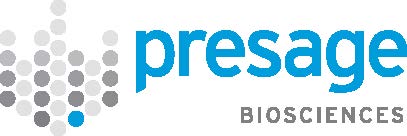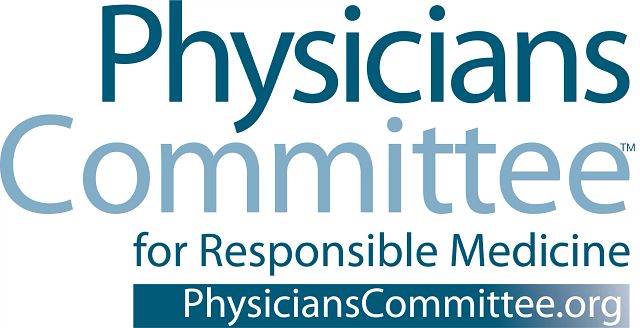Phase-0 Including Microdosing Approaches
Phase-0 drug development trials are clinical development approaches that include microdosing trials. These approaches are sometimes called ‘Exploratory Clinical Trials’ ‘Exploratory Investigational New Drug (eIND)’ applications. Phase-0 studies are aimed at providing human data to support selection of preclinical drug candidates prior to entering clinical development.
Read more...
Phase-0 approaches, also called 'Exploratory Clinical Trials', and 'exploratory Investigational New Drug' (eIND) applications:

Regulatory Framework
The International Conference on Harmonization (ICH) M3 Guidelines outline the regulatory position on Phase-0 including Microdosing approaches. In addition, examples of 5 Phase-0 approaches are provided.

Operational Factors
Phase-0 approaches offer many operational advantages over traditional Phase-1 approaches. These advantages enable arrival at meaningful developmental decisions in a safer, quicker, and cheaper manner than is possible with traditional Phase-1.

Application Criteria
The Phase-0 application criteria are developmental scenarios in which Phase-0 may provide advantages over traditional Phase-1. These criteria are the product of Phase-0/Microdosing Network discussions and stakeholder meetings.
4th Annual Phase-0/Microdosing Stakeholder Meeting: Intra-Target Microdosing (ITM): Revolutionizing Clinical Pharmacology and Drug Development
In-person / online meeting
Monday, April 24, 2023 (8:00 am - 5:00 pm Eastern Standard Time)
Wyndham Boston Beacon Hill
Boston, MA, USA

Intra-Target Microdosing (ITM): Revolutionizing Clinical Pharmacology and Drug Development
In-person and online meeting
Monday, April 24, 2023
Organized by: Phase-0/Microdosing Network (phase-0microdosing.org)
Chair: Tal Burt, MD - President, Phase-0/Microdosing Network and Burt Consultancy, LLC

Organizing Committee:
Yuichi Sugiyama, PhD, - Special Professor Emeritus in Josai Interanational University.
Kirsten Anderson
Markus Weiss, PhD - Director in clinical pharmacokinetics, Novartis Institutes for Biomedical Research
Joseph DiMasi, PhD, - Director of Economic Analysis, Tufts Center for the Study of Drug Development, Tufts University
Kev Dhaliwal, MD, PhD - Professor of Molecular Imaging & Healthcare Technology, University of Edinburgh, UK
Go van Dam, MD, PhD - CEO & Co-Founder, TRACER
Intra-Target Microdosing (ITM): Revolutionizing Clinical Pharmacology and Drug Development
In-Person and Online Meeting
Monday, April 24, 2023, Boston, MA, USA
Organized by: Phase-0/Microdosing Network (phase-0microdosing.org)
Chair: Tal Burt, MD - President, Phase-0/Microdosing Network and Burt Consultancy, LLC.
Co-Chair: Kirsten Anderson - Chief Operating Officer at Xentria, Inc.
Organizing Committee:
Chair: Tal Burt, MD - President, Phase-0/Microdosing Network and Burt Consultancy, LLC
Co-chair: Kirsten Anderson, Kirsten Anderson, Chief Operating Officer at Xentria, Inc.
Yuichi Sugiyama, PhD, - Special Professor Emeritus in Josai Interanational University.
Markus Weiss, PhD - Director in clinical pharmacokinetics, Novartis Institutes for Biomedical Research
Joseph DiMasi, PhD, - Director of Economic Analysis, Tufts Center for the Study of Drug Development, Tufts University
Kev Dhaliwal, MD, PhD - Professor of Molecular Imaging & Healthcare Technology, University of Edinburgh, UK
Go van Dam, MD, PhD - CEO & Co-Founder, TRACER
Goals:
- Formulate guidelines for the application of ITM and other Phase-0/Microdosing
- Establish recommendations for further research and development
Objectives:
- Provide update on validation, methodology, applications, and
- Obtain input from stakeholders (regulatory, academia, industry, CROs, non-profit, patient advocacy) on the value, prospects, and challenges facing these approaches.
- Establish consensus statements on future directions in research and applications
AGENDA
8:00 - 12:00 : Plenary session:
TIME
SPEAKER
TITLE
8:00-8:25
Tal Burt, MD
Introduction to Intra-Target Microdosing (ITM)
8:25-8:50
Oliver Jonas, PhD
ITM to Measure Multiple Drug Responses in Cancer Patients
8:50-9:15
Nathan Schauer, PhD
Multiplexed Microdosing of Surface-Accessible Tumors for Comparative Spatial Oncology
9:15-9:45
Yuichi Sugiyama, PhD & Yasunori Aoki, PhD
ITM Modeling and Simulations
9:45-10:00
Break
10:00-10:25
Kev Dhaliwal, MD, PhD
Pulmonary Microdosing - the beginning of an interventional journey in drug development
10:25-11:00
Technology panel
Technology Aspects of ITM and Other Phase-0 Approaches
11:00-11:35
Regulatory panel
Regulatory Aspects of ITM and Other Phase-0 Approaches
11:35-12:00
Joseph DiMasi, PhD
The Economics of Implementing Phase 0 Techniques – Methods for Measuring Financial Value
| Time | Speaker | Title |
|---|---|---|
| 8:00-8:25 | Tal Burt, MD | Introduction to Intra-Target Microdosing (ITM) |
| 8:25-8:50 | Oliver Jonas, PhD | ITM to Measure Multiple Drug Responses in Cancer Patients |
| 8:50-9:15 | Nathan Schauer, PhD | Multiplexed Microdosing of Surface-Accessible Tumors for Comparative Spatial Oncology |
| 9:15-9:45 | Yuichi Sugiyama, PhD + Yasunori Aoki, PhD | ITM Modeling and Simulations |
| 9:45-10:00 | Break | |
| 10:00-10:25 | Kev Dhaliwal, MD, PhD | Pulmonary Microdosing - the beginning of an interventional journey in drug development |
| 10:25-11:00 | Technology Panel | Technology Aspects of ITM and Other Phase-0 Approaches |
| 11:00-11:35 | Regulatory Panel | Regulatory Aspects of ITM and Other Phase-0 Approaches |
| 11:35-12:00 | Joseph DiMasi, PhD | The Economics of Implementing Phase 0 Techniques – Methods for Measuring Financial Value |
12:00 - 13:00 : Luncheon seminar (Lunch time talks by sponsors) and break
13:00 - 15:00 : Breakout Sessions:
TIME
Moderators
Group
Discussion item
13:00-15:00
Kev Dhaliwal, MD, PhD, Colin Brenan, PhD, Kirsten
1
ITM
13:00-15:00
Oliver Jonas, PhD, Daniel Mccartt, PhD
2
Technology
13:00-15:00
Francis Crawley, Christine Dominas, Annya Bruce, PhD
3
Regulatory
13:00-15:00
Nathan Schauer, PhD, Jasminder Sahi, PhD
4
Strategy and execution
| Time | Moderators | Group | Discussion item |
|---|---|---|---|
| 13:00-15:00 | Kev Dhaliwal, MD, PhD, Colin Brenan, PhD, Kirsten Anderson | 1 | ITM |
| 13:00-15:00 | Oliver Jonas, PhD, Daniel Mccartt, PhD | 2 | Technology |
| 13:00-15:00 | Francis Crawley, Christine Dominas, Annya Bruce, PhD | 3 | Regulatory |
| 13:00-15:00 | Nathan Schauer, PhD, Jasminder Sahi, PhD | 4 | Strategy and Execution |
15:00 - 15:15 : Break
15:15 - 17:00 : Closeout Session: Summary of breakout sessions, consensus statements, and action items (Chairs: Tal Burt & Kev Dhaliwal)
Abstract
Concerns about the costs and duration of drug development projects and the risks of exposing animals, in early work, and humans to novel chemical entities, have led to efforts to improve drug development with limited exposure studies using microdosing and other Phase-0 approaches. Common to these approaches is the implied safety of limited exposures to the investigational drug. For example, with microdosing the dose is less than 100 µg or 1/100th of the anticipated therapeutic dose. With Intra-Target Microdosing (ITM) the microdose is administered directly into an area about 1/100th of the body mass, momentarily generating therapeutic-level exposures. Such approaches allow safer and earlier entry into human testing, and human-based selection from preclinical candidates. These approaches are also called Exploratory Investigational New Drug (eIND) applications and exploratory clinical trials and are regulated under the internationally harmonized ICH M3 guidance.
Phase-0 approaches allow study of drug pharmacokinetic (PK) and pharmacodynamic (PD) properties. Specific applications include use in target localization, drug-drug interactions (DDIs), effects in vulnerable populations (e.g., pediatric), and ITM. The sub-therapeutic doses in Phase-0/Microdose studies require the use of sensitive analytic tools such as Accelerator Mass Spectrometer (AMS), Positron Emission Tomography (PET) and Liquid Chromatography Tandem Mass Spectrometry (LC-MS/MS). These tools are used to study disposition, effects, and metabolites of the novel drug under study.
Recent research has advanced the validity and applicability of microdosing and other Phase-0 approaches. The approaches can accelerate drug development timelines and reduce developmental attrition by increasing the quality of candidates entering clinical development and by reducing the time to ‘go-no-go’ decisions. The meeting will engage participants in discussion of the recent advances, implementation challenges, and future directions in research and applications of these approaches.
From Our Sponsors
Silver Sponsor

Sanofi is an innovative global healthcare company. Sanofi provides potentially life-changing treatments and the protection of life-saving vaccines to millions of people (https://www.sanofi.com,Sanofi)
Silver Sponsor

Novartis Institutes for BioMedical Research, Inc. Major discovery efforts at the frontiers of science. (www.novartis.com)
Bronze Sponsor

Kibur Medical closes the translational gap with a proprietary, FDA-approved, pathology-driven technology that brings the laboratory into the patient, enabling selection of the right drug for the right patient, and changing the game in drug development and precision medicine. Learn more at https://kiburmed.com.
Bronze Sponsor

The Translational Healthcare Technologies (www.tht.ac.uk) Team at the University of Edinburgh is launching a disease agnostic, pathway agnostic microdosing platform (MICRODEFINE) with the aim to democratize early phase discovery and drug development. The initial launch and focus of MICRODEFINE is cassette microdosing of immunomodulators in lung diseases.
Bronze Sponsor

Presage's mission is to understand the complexities of the tumor microenvironment and with our proprietary CIVO (Comparative In Vivo Oncology) platform, generate insights into intact patient tumors. CIVO delivers trackable microdoses of multiple drugs and drug combinations to different regions of a tumor, while the tumor is still in a patient. Presage collaborates with other innovators who are at the forefront of spatial biology and oncology drug development. https://presagebio.com/
Bronze Sponsor

The Physicians Committee advocates for ethical and effective scientific research that replaces animal use in regulatory testing with innovative, human-relevant methods. See www.pcrm.org.
All material is subject to copyright ©
For information, suggestions, and donations: